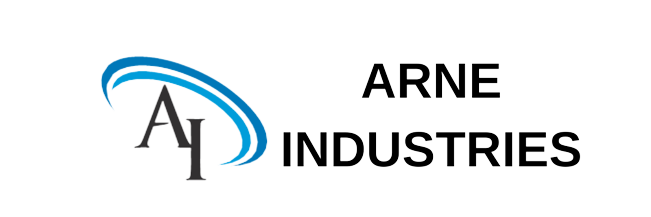Polyvinyl Chloride (PVC) is one of the most widely-used and valuable synthetic polymers in the world. Discovered in 1832 by the French chemist Henri Victor Regnault, and around since the 1920s when it was first produced by the B.F. Goodrich Company, PVC is used in a variety of applications.
Today, PVC coating is used in virtually every industry. Be it healthcare, gas, mining, automobile, and even the military, its applications are widespread. Even in our daily lives, we use PVC-coated tools, racks, and car accessories daily.
This article is a good place to know what exactly PVC is, how is it done on different materials, its benefits, and its applications.
What is PVC?
Before we talk about the benefits and applications of PVC, it is essential to know what it is.
PVC is a formulation of polyvinyl chloride particles mixed with a plasticizer. When these particles are put through heat, liquid plastisol gets created in the process. Objects needing a coating are dipped in this plastisol to lend them a sturdy yet flexible finish.
What are the benefits of PVC?
There are two types of PVCs available- rigid and flexible. Flexible PVC is mostly used for the insulation of electrical cables and as an alternative to rubber. Rigid PVC is used primarily in plumbing and construction.
It is considered to be the most popular and widely-used plastic in the world today due to its tremendous benefits. Let’s take a look at some of them:
- PVC offers water resistance and is an ideal material to coat materials that need to be safeguarded from water.
- Its non-slip qualities make it an ideal coating for gloves and socks. That’s not all, it is also commonly used on handle grips of tools.
- One of the major advantages of PVC is that it is highly durable and makes the coated material last for decades. This sturdiness of PVC comes from its density, which resists deformation due to dents, impact, or scratches.
- Since it is highly resistant to corrosion, chemicals, abrasions, impact, moisture, and even fire, it has better versatility as compared to other plastic coatings. It can be used on a variety of materials to improve their tensile strength.
- Due to the dipping process, it is easy to coat objects that are shaped in a complicated manner.
- Vinyl coatings are highly customizable. They can easily be pigmented to match any possible base color. It can also be given a textured finish.
- PVC makes the object an excellent insulator. This makes it perfect for use in electrical components and safety equipment.
- Compared to other kinds of plastic coatings, PVC is pretty economical.
- PVC can be easily sterilised. This makes it perfect for use in manufacturing medical products such as thermometers, IV tubes, medicine boxes, etc.
- Since it is transparent, it can be easily printed on with either one’s branding or safety guidelines.
- PVC has received medical and food contact approvals making it safe for use in hospitals and packaging foods securely.
- It is an environment-friendly plastic coating. Its production process consumes much less energy and resources as compared to other plastics.
- PVC is completely recyclable. It can be reprocessed and recycled for newer applications.
What Are Some Applications of PVC?
Right from common daily use objects to industrial products, a large number of products and equipment benefit from a polyvinyl coating. Here are some of the industries where PVC coating is used:
Healthcare: PVC is used in making a variety of life-saving medical products and equipment due to its sturdiness. Some of these include:
- Blood bags
- IV containers and tubes
- Artificial skin in burns units
- Plasma and blood transfusion sets
- Cannulae and catheters
- Containers for storing blood or tissues
- Blister packaging
- Gloves and overshoes
- Disposable medical devices
- Water and drainage pipes
- Operation theatre flooring
- Mattress covers
- Oxygen tents
Construction: Being Lightweight, long-lasting, and cost-effective, PVC has hundreds of applications in the construction industry. These include:
- Windows and doors
- Pipes and fittings
- Wiring for power, data, and telephones
- Roofs and ceiling systems
- Systems for rainwater and waste
- Coverings for walls
Automotive: This industry also utilises PVC in several ways. These include:
- Seat covers and interiors of cars
- Door panels
- Mud flaps
- Coating for the car’s underbody
- Sun visors
- Panels for instruments and equipment such as music system
Other daily-use objects and products where PVC is used include:
- Insulation for wires
- Racks for dishwashers
- Anti-chew cages for animals
- Benches, chairs, and tables
- Rims of wheelchairs
- Outdoor furniture
- Hangers
- Gardening socks, gloves, and tools
- Footwear
- Cling films
- Credit cards
- Vinyl records
- Water pipes
- Window frames
- Sports equipment, clothing, and protective barriers
Conclusion
PVC is a versatile plastic coating that is not just extremely durable but also cost-effective. Its attributes such as water resistance, ease of maintenance and cleaning, and it is antiviral, antimicrobial, and UV and fire-resistant make it a superior coating material. Almost every industry has found a use for PVC today and its applications continue to grow.


